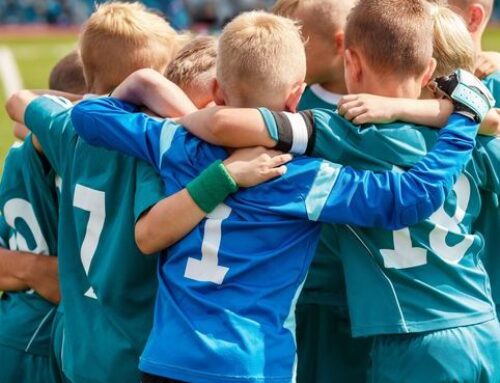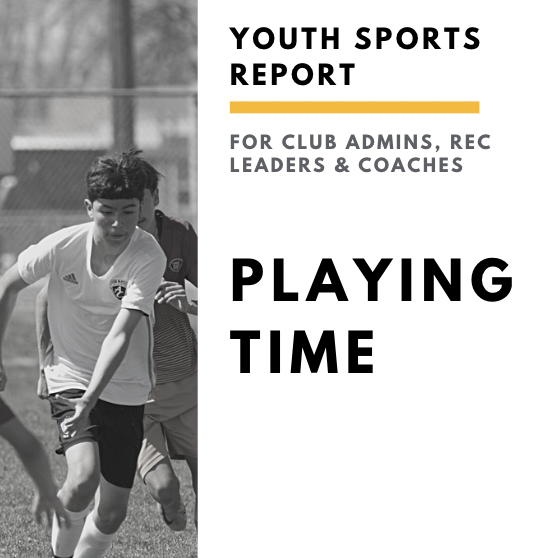Get our exclusive report. Download the iSport360 Club Switching Report Here – For Club Admins, Rec Leaders and Coaches.
Regaining Your Confidence: A Playbook for Athletes
Confidence is the fuel that propels athletes to greatness. It’s that intangible quality that can make the difference between a winning performance and a lackluster one. However, every athlete, no matter how accomplished, will inevitably face moments when their confidence wavers. Whether it’s due to a string of disappointing results, a major injury, or just the natural ebb and flow of athletic performance, the key is not to let that dip in confidence define your journey. In this blog post, we’ll explore how athletes can regain their confidence and get back on the path to success.
Self-Reflection and Acceptance
The first step in regaining lost confidence is to engage in self-reflection. Athletes should take the time to understand why their confidence has waned. Is it because of external factors like criticism from coaches or teammates, or is it internal, stemming from self-doubt and negative self-talk? By identifying the root causes, athletes can start addressing them effectively.
Furthermore, acceptance is crucial. Understand that every athlete goes through periods of self-doubt. It’s a natural part of the journey. Accept that you are not alone in feeling this way, and it’s okay to have moments of insecurity. This self-compassion can be the foundation for rebuilding your confidence.
Setting Realistic Goals
Goal-setting plays a pivotal role in an athlete’s confidence. However, it’s essential to set realistic goals that are achievable. Unrealistic expectations can lead to constant disappointment and erode your confidence further. Break your long-term goals into smaller, manageable steps, and celebrate your progress along the way. Small victories can be powerful confidence boosters. For more on setting and tracking goals, check out our blog post here.
Positive Visualization
Visualization is a powerful mental tool used by many successful athletes. Spend time each day visualizing yourself performing at your best. See yourself making that perfect shot, crossing the finish line first, or nailing that routine. Engaging in this positive visualization can help rewire your brain to focus on success rather than failure.
Seek Professional Help
Athletes should not hesitate to seek professional help when their confidence takes a significant hit. Sports psychologists are trained to work with athletes to improve their mental game. They can provide techniques and strategies to boost confidence and manage performance anxiety. Don’t view it as a sign of weakness; instead, see it as an investment in your mental resilience.
Return to the Basics
Sometimes, a loss of confidence can be attributed to overthinking or becoming too focused on advanced techniques and strategies. Returning to the basics of your sport can be incredibly grounding. Reconnect with the fundamentals, and build your confidence from there. As you regain your mastery of the basics, you’ll naturally start to feel more in control and confident.
Learn from Failure
Failure is an integral part of an athlete’s journey. Instead of dwelling on failures and allowing them to erode your confidence, use them as learning opportunities. Analyze what went wrong, adjust your approach, and come back stronger. It’s often said that champions aren’t born; they’re made through failures and comebacks.
Surround Yourself with Positivity
Your environment has a profound impact on your confidence. Surround yourself with people who uplift and support you. Seek out coaches, teammates, and friends who believe in your abilities and encourage you to strive for greatness. A positive support network can be a powerful source of motivation and confidence.
Develop Mental Resilience
Building mental resilience is a key component of regaining confidence. Train your mind to bounce back from setbacks and adversity. This can be achieved through mindfulness practices, meditation, and breathing exercises. A resilient mind is less likely to be shaken by self-doubt and external pressures.
Keep a Confidence Journal
Consider keeping a confidence journal where you document your achievements, positive feedback from coaches and teammates, and personal milestones. Reviewing your progress in writing can be a powerful reminder of your abilities and accomplishments when you need it most.
Embrace Failure as Growth
Confidence is not about never failing; it’s about believing that you can overcome failure. Embrace failure as a stepping stone to growth and success. Each setback is an opportunity to become a better athlete and a stronger person.
Regaining lost confidence is a journey that requires patience, self-awareness, and perseverance. Every athlete faces moments of self-doubt, but it’s how you respond to those moments that defines your path forward. By engaging in self-reflection, setting realistic goals, seeking professional help when needed, and developing mental resilience, you can rebuild your confidence and continue to excel in your sport. Remember that confidence is not a constant; it’s a dynamic quality that can be cultivated and strengthened over time. So, embrace the process, trust in your abilities, and watch your confidence soar to new heights.
iSport360 is the only app that does it all for youth sports. For more information on what we do, click here.
About the author:
Amy Masters is a sports mom, coach, and club administrator. She has been coaching youth sports for more than 10 years. She started Jr Lions Field Hockey, the youth recreation program for the Hunterdon County community growing it from 40 players in year 1 to 150 players by year 3. A few years later, she saw the love and competitiveness grow then started Omega Field Hockey Club serving NJ and PA players. Prior to coaching, she was a collegiate field hockey player for Lock Haven University. In her spare time (lol), she is head of marketing for iSport360, where she brings her love of sports to a bigger audience.
Learn more or request a demo of our youth sports software that is helping teams improve communication, organization and player development.
October 1, 2023





